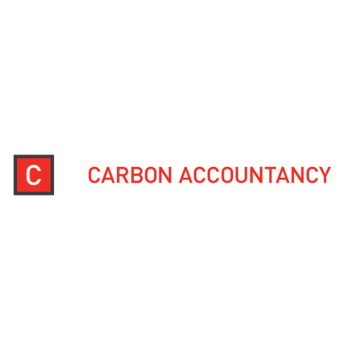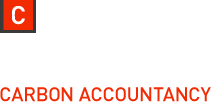Recent
Business Mondays - Carbon Accountancy's "Santa CEO" John Leyden
16 December 2020
London EC1A Community Project
16 July 2020
What Lies Ahead For Accountancy Firms Large & Small?
23 June 2020
How retailers and their suppliers can prepare for the coming year – Corona crash and Brexit combined
29 May 2020
Incubeta Ignite Virtual Learning Series - Carbon Accountancy 15% discount
4 May 2020
Sole Trader or Company? A Guide for Contractors and Freelancers. April 2017.
1 April 2017
Sole Trader or Company?
The biggest question facing most contractors and freelancers is whether they should be a sole trader or a company.
There are several obvious advantages to being a company, including limited liability. But the cost of running a company is about £1,000 per annum more than the cost of being a sole trader.
Over the last few years HMRC has sought to reduce the tax saving in terms of being a company as opposed to being a sole trader. As a result of these changes, we have raised the approximate "break-even" level, from about £25,000 of annual profits to approximately £50,000 of annual profits, before which it is really worth considering being a company.
Therefore, we recommend that you consider the likely level of your profits (before deducting your salary) over the next few years in order to assess which structure is better for you.
Payroll
If you operate through your own company, then it will become PAYE registered and employ you as Director.
The company will give you a salary of approximately £8,000 per annum (this is the level at which National Insurance kicks in (12% employee and 13.8% employer) - this uses most of your tax free personal allowance and is a tax-deductible expense for the company - thereby saving about £1,600 is tax per annum.
VAT
All contractors or freelancers with a turnover of more than £83,000 will have to register for VAT and submit quarterly VAT returns.
You can opt for the flat rate VAT scheme which reduces the administration burden slightly. People used to opt for this because it saved money as well - but recent changes by HMRC mean that it is no longer profitable to be on the scheme - we therefore recommend most people use the normal VAT scheme.
What expenses are tax deductible?
Most of your business expenses will be tax deductible. HMRC considers that anything that is "wholly, exclusively and necessarily" for business purposes will be tax deductible. There are a few exceptions to this (such a client entertaining and fines and penalties which are not tax deductible). In addition, contractors are restricted from claiming travel and subsistence if they are managed and supervised by the client.
How should I keep my books and records?
For a relatively simple business such as freelancing and contracting we recommend you use Excel. We can provide a template spreadsheet for keeping your records.
You need to keep your invoices, receipts and bank statements for at least 6 years in case HMRC wish to inspect them.
What is the cost of running a company?
The cost of running a company versus being a sole trader is slightly different. In both scenarios below we offer fixed fee rates which include ad-hoc queries and advice during the year - issues such as the cost of taking more dividends, what tax savings you can make by paying into pensions etc. are all covered by our fees.
As a sole trader, we offer a fixed fee service at a cost of £750 plus VAT for your annual accounts and income tax return, including ad-hoc queries and advice when needed.
If you are a company, we offer a fixed fee service at a cost of £1,750 plus VAT for your annual accounts, corporation tax return, income tax return, payroll and company secretarial services (including a registered office if required) along with ad-hoc queries and advice when needed.
We always recommend that you prepare your own books and VAT returns as this will save you additional fees. However, if you do want us to prepare your books and VAT returns from invoices, receipts and bank statements we are happy to help - we offer a fixed fee service of £350 plus VAT per quarter - but we fully recognise that most people can easily do this themselves and we recommend you try to save on our fees by doing so.
How much tax should I keep aside?
Company Structure
Corporation tax is going to go down from 20% to 17% over the next few years. We recommend that you try to keep 20% of your net of VAT turnover aside for corporation tax – that way there should be a little more put aside than you actually need.
Income tax on dividends will depend on whether you have any other income from sources outside your company (i.e. your salary of approximately £8,000). Assuming you do not then you should put aside the following:
7.5% of the first £30,000 per annum (or £2,500 per month) and 32.5% of everything above that level.
If you anticipate your income exceeding £100,000 then you need individual advice as you risk losing your personal allowance and paying 60% tax!
Sole trader Structure
You will need to put aside the following:
First £8,000 Nil
Next £3,000 9%
Next £32,000 29%
Over £32,000 42%
If you anticipate your income exceeding £100,000 then you need individual advice as again you risk losing your personal allowance and paying 60% tax!
What are the deadlines?
Company
Filing accounts with Companies House - 9 months after the year end
Payment of corporation tax - 9 months after the year end
Filing accounts and corporation return - 12 months after the year end
Confirmation Statement (Companies House) - Annually around the anniversary of incorporation
Payroll - Monthly before 5th of the month
VAT returns and payment thereof - 30 days from the end of the Quarter
Personal
Income tax return 31st January each year
What about pensions?
By drawing the basic salary mentioned above you will trigger a credit for your State Pension. We do recommend that you pay additional private pension contributions if you can afford to (especially once you have got things like getting on the property ladder out of the way). This will help you in saving corporation tax or income tax as well as saving for retirement.
If you opt for a company structure your company will pay the pension contributions, rather than you personally - your company will claim this as a tax-deductible expense.
Can I have a no obligation initial meeting?
We always offer a no obligation initial meeting. If you wish to arrange a meeting please contact John Leyden on 020 7710 5300 or by email on john@carbonaccountancy.co.uk.
If you liked our Guide For Contractors And Freelancers To Choose between Being A Sole Trader Or A Company then please view Carbon Accountancy services.






